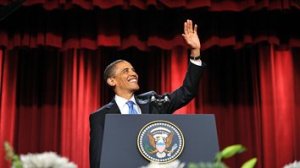 |
| guardian.co.uk © Guardian News and Media Limited 2010 |
One of the things I often love to do on my iPad is checking out a photo app, called “TheGuardian Eyewitness.” Today, I came across one of the photos that kind of struck me and encouraged me to share it on my Facebook profile.
The photo was of a group of shirtless, masked Palestinian teenagers being run over by an Israeli car driver in the mostly Arab east Jerusalem neighborhood of Silwan. The kids, as the photo caption states, were throwing stones at Israeli cars.
Sharing the photo on Facebook created some kind of intense debate between me and a good high school friend of mine, who expressed his anger against the Israeli driver who was being attacked by the teenagers. The comment was very aggressive, demonizing and out of context that forced me to debate it.
Like many Iraqis and Arabs who care about their Palestinian “brothers,” my friend wrote something in which he indirectly implied that the car driver was the terrorist. He mentioned in a sarcastic way that, “Netanyahu also released a statement for killing the militants and promising that Israel would continue pursuing terrorists anytime and anywhere,” ending it with four exclamation marks.
That was not surprising, as unfortunately most Arabs let their emotions control their actions. I used to be that one too. I used to refuse everything against the Palestinians, and I used to let my emotions speak before my brain thinks. But not anymore!
I couldn’t take sitting back and not respond. I knew what his answer would be. I even knew that responding was not going to do any good, but I decided to better try than not.
I looked at the photo over and over and it was very clear who was being attacked. So I said, “The kids were the ones attacking the car drivers. Besides, if I were the driver and got attacked by anyone, I would do whatever I can to get away from them. Since the kids were hit in front of the car, it’s possible they threw themselves there to harm the man. This is not even a tank!!!!”
That intensified the heated debate. At the end, my friend accused me of being biased and that I shouldn’t be weak and if I don’t believe in my “Middle Eastern principles” I should suck it up (which I think he meant to ‘shut up’ basically).
But I did not shut up and I did not suck it up. I think it’s about time to say what needs to be said, which I wrote in my replies to him.
I believe in a two-state solution. This would end the suffering and the struggle and let the peoples of Palestine and Israel live in peace. For saying that, I know some people will call me a traitor, ameel (agent), anti-Arab, anti-Palestine… etc.
Not that I need to defend myself, but no, I’m not all of the above! I very much sympathize with the Palestinians. I call for ending their struggle, and I look forward to seeing them having a great nation some day. Saying what is not wanted to be heard should not turn into accusations of loyalty.
Enough is enough. Fighting is not a solution for both sides. They have been doing this for decades. What have they achieved? The Palestinians have been resisting Israel and calling for wiping it off the map. It’s not gonna happen and neither will the disappearance of Palestinians from their lands, which the Israelis are trying to achieve by expanding their settlements.
It’s time to stop and look back. It’s time to look at their situation, at themselves, and think! And it’s time my fellow Arabs sit back and think logically before letting their emotions block the voice of reason that could be the very solution for that crisis.







